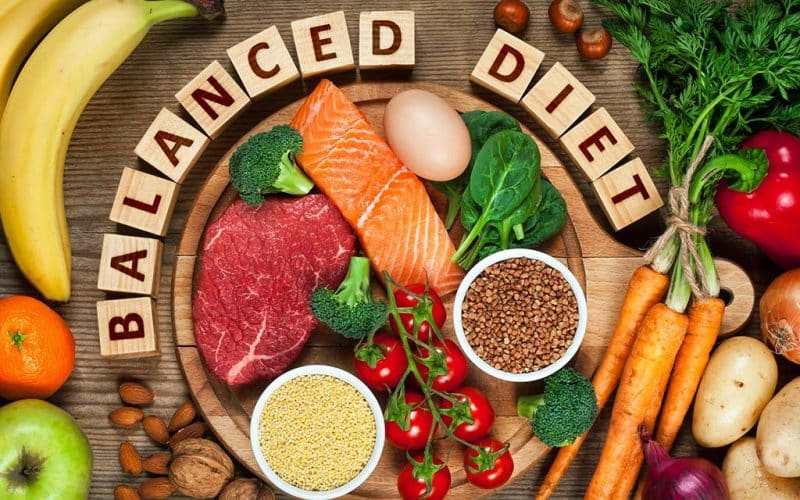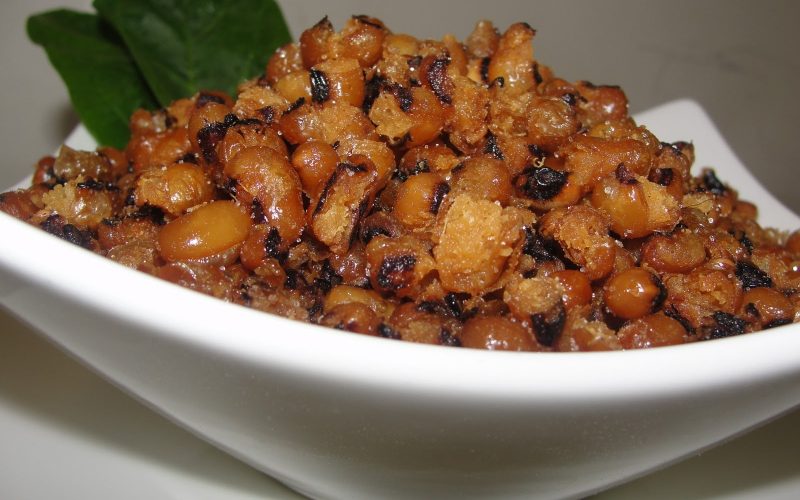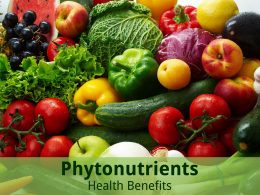Food is a basic necessity for every living thing. For us humans, food comes in various forms and contains various nutrients to keep us active and functioning.
In cases where we do not get the required amount of nutrients from the food we eat, deficiencies occur.
Yes, we all grew up hearing tales about how fruits and vegetables are fantastic and why we must avoid overeating carbohydrates, but sometimes it’s challenging to keep tabs of the quality of food we eat. This brings us to the importance of consuming a balanced diet.
In this article, you will be exposed to what a balanced diet is, why you need to have a balanced diet, and what problems can arise from consuming foods that are not balanced.
What is a balanced diet?
Food, in general, is classified into six different categories; protein, carbohydrate, water, vitamins, fats and oils, and minerals. Some have argued that there are seven instead of six classes of food – the 7th class would be fibres.
But whichever way you choose to understand it, the primary point is that it is essential to have all the necessary nutrients in the food you eat. A balanced diet is one that contains each of these classes of food.
Almost everyone is familiar with the five food groups which are: fruits, vegetables, protein, fibres, and dairy; so I wouldn’t waste time explaining those.
But, for the six classes of food, I will explain the different functions they perform in the body, so you understand why you need them in your diet.
Carbohydrates
Carbohydrate is our primary source of energy. While energy production may be the essential function of carbohydrate, it also acts as structural molecules.
Take for instance; there is a part of the human muscles and liver that contain is the storage form of starch known as glycogen.
For people who think fibres should be classified as a nutrient on their own, fibres are actually a non-digestible form of carbohydrates, and they do not contribute to energy production, rather fibres help the digestive system.
Protein
Protein is an essential nutrient because it helps to give your body amino acids that it needs for the creation of specific structures and functions.
What protein does is help with building your muscles boosting your immune system, help to transport molecules in and out of your cells and even create the basis for enzymes and hormones.
Your cells cannot absorb your food protein because these proteins are too large. So your digestive system does the job of breaking them down into single particles of amino acids, which then travels in your body and performs the basic functions they were created to perform.
Water
It goes without saying that water is the most important nutrient of all. While it is possible for humans to live an extended period of time without food, it is impossible to survive without water.
Water performs several functions in the human body; it is needed for so many reactions within your cells.
Despite the importance of water in the human body it is easily lost through urine and sweat. Losing between one to two per cent of your water weight can lead to fatigue, dizziness, and dehydration amongst other things.
Losing as much as 10% of your body water can lead to life-threatening heat stroke, which is why it is vital that an adult consumes as much as two to three litres of water daily.
In scorching weather, you may need to consume more water than the recommended quantity. To keep your skin and hair healthy, it is also vital that you drink enough water. So from all of these, you can already tell that the functions of water in the human body are innumerable.
Fats and oils
The fats and oils that you consume to provide your body with a concentrated amount of energy that it can store up for later use.
Dietary fats need to be digested before they can be used by your body and the function as helpers for the maintenance of healthy cell membranes.
Fats also function in the synthesis of steroid hormones such as testosterone and estrogen. While fats are vital, too much of them can increase your risk of suffering from certain medical conditions like obesity and heart diseases.
Vitamins and minerals
What set vitamins and minerals apart from the other nutrients is that they do not need to be digested by your body before you begin to benefit from them. These molecules may be small, but they serve a variety of purpose for your tissues and cells.
Calcium is a mineral that your bones and teeth need to be healthy and strong, Potassium performs the duty of regulating your blood pressure, zinc keeps your immune system healthy, and Iron helps to transport oxygen through your blood.
Vitamins A is excellent for these eyes, many of the B vitamins help you get the energy present in the foods unit quickly, and vitamin D helps with the absorption of calcium.
If you must enjoy proper nutrition from the food you eat, then it is imperative that thou consume your calories in Whole grain, fresh fruits, fresh vegetables, lean protein, nuts, and legumes.
What are calories?
Calories are simply the amount of energy present in the foods you eat. Your body needs the calories from your diet to perform essential functions like thinking walking breathing and many other things.
To maintain your body weight, you would have to consume as much as 2000 calories every day. However, the daily calorie intake of a person can vary depending on the person’s gender age and activity level.
Generally speaking, men need to consume more calories than women and people who workout need to consume more calories than people who live sedentary lives.
While the amount of calories you consume every day is important the source of these calories is equally as important most people, especially in this 21st century, consume empty calories empty calories are defined as those calories that do not provide you with any nutritional value.
Calories gotten from sugary foods and solid fats like butter are considered empty calories.
Why do you need a balanced diet?
For your cells and organs to function properly you must consume a balanced diet people who do not consume balanced diets are prone to diseases and infections has also been noticed that children who do not get enough nutrition suffer from growth defects and even have learning difficulties.
To feed on a balanced diet, you must avoid foods that are high in sugar and all essential fats. Such foods increase your chances of suffering from obesity as mentioned earlier.
If you are a picky eater, then you can look for healthy Options of foods that will still give you the required nutrition.
Avoiding easy foods like bacon, energy drinks, pizza, and doughnuts amongst others and engaging in regular exercise can keep your body fit and healthy.









